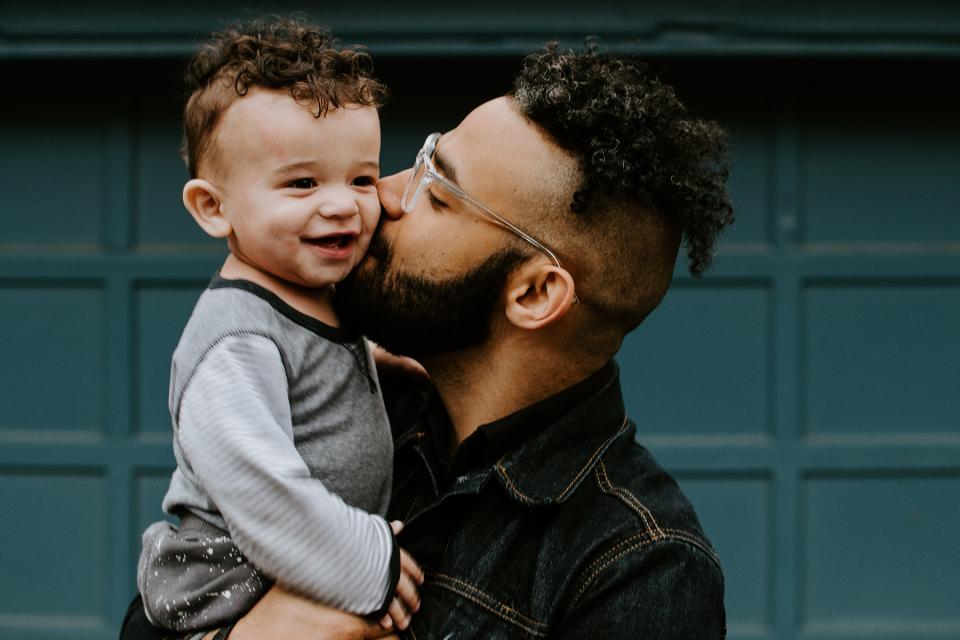New Year's Resolutions for Co-Parents

When the new year starts, many of us are evaluating our lives. January is the time to think about what has gone well and what we've accomplished. But we also think about what hasn't been going so well—and what we wish to change. It’s time for a fresh start (at least internally).
Most goals are about the person making the resolution: lose weight, quit smoking, start a budget. But some of the best goals are focused on relationships, because our relationships have such a powerful influence on our daily lives. Maybe you want an easier relationship between you and your co-parent, or maybe you want to support your child better.
If you're a divorced or separated parent, the new year is an excellent time to reflect on your family and co-parenting arrangement. Whether last year was a great year for shared parenting or if it was particularly challenging, your resolutions can set the tone for a year of co-parenting as amicably as possible, given your situation.
Seven New Year's Resolutions for Co-Parents
To help you start thinking about goals for your family this year, here are seven ideas.
Protect and respect your child
Tell your child you love them, often. Kids need to hear that regularly, especially during tough emotional times.
Don't use your child as a messenger or spy—let your kids be kids. Feeling caught in the middle is damaging to children’s mental health, and it makes them feel like their loyalties are torn.
Let go of your anger and enjoy the positive things in your life
You deserve to feel good and be happy. Negativity often swirls around divorce and separation, but working on letting go of your anger and moving past the pain can help you take strides forward. Going to therapy can be tremendously helpful in this process.
Remember the good things that surround you, and focus your energy there. Staying positive overall can, in turn, promote positive interactions with your co-parent. (And even if it doesn’t, you’ll have permission from yourself to feel ok anyway.)
Cultivate respect—even when it’s difficult
Respecting your co-parent might be challenging or might even seem impossible. But respect is the fundamental trait of healthy co-parenting. You don’t have to like your co-parent as a person, but you can acknowledge the meaningfulness of their role in your child's life. And if they love your child, that sets a simple foundation for respect.
Even if you don't always agree with your co-parent’s decisions, you can acknowledge their right to be an authority in your child’s life. As long as they never put your child's safety into question, try believing that the parenting choices they make come from the right place. This reduces not just conflict between the two of you but also your internal stress levels.
You can even respect your co-parent's right to live their own life apart from parenting, and you can absolutely expect the same from them.
Find where you can compromise
A little give and take can go a long way. Instead of immediately discounting an idea coming from your co-parent, look for areas where you can suggest a compromise.
Taking the time to negotiate decisions, rather than sticking to your first stance, can lead to better outcomes for both of you. It also shows your child that their parents can work together to reach decisions peacefully, which is a tremendous stress reliever for your child. This lesson in teamwork and compromise can go a long way toward encouraging your kid to handle similar situations in the same way.
Don't sweat the little things
Sometimes, it's the small annoyances that really get under the skin. And that can make raising children feel even harder. Of course, it’s best not to get too worked up over the little things—but that’s easier said than done.
A few practical strategies really help you keep your cool when you’re upset with your co-parent. Try breathing exercises, refocusing techniques, washing your hands with cold water, going to therapy, and taking care of yourself (see the next section). A little flexibility can go a long way.
Take care of yourself
In this new year, emphasize the importance of self-care. It’s easy to get caught up in focusing on others—caring for your child and feeling frustrated with your co-parent—but you matter, too. It’s not selfish to focus on yourself. Parents who take care of themselves have an easier time parenting thoughtfully and intentionally.
Regular exercise is not only good for the body, it's also very good for the brain. The neurological benefits of exercise include an improved ability to process emotions, increased energy and focus, and lower stress and anxiety levels. Along with exercise, you can work to maintain a balanced diet and a regular sleep schedule. Getting the right amount of sleep has a massive impact on mood, including irritability.
When you're not with your child, you might feel lonely or disoriented. Focus on using your time to do things you enjoy. Spend time with friends, explore new or old hobbies, or try out new adventures. If you maintain your self-care, it’s easier to be fully present when you are with your child.
Work together
Parenting is a huge responsibility, and cooperation between co-parents can make it much easier to manage. When you’re divorced or separated, it can be extraordinarily difficult to cooperate, but it is still important to try. Using tools to help you communicate and share information clearlycan be helpful in this situation. When parents collaborate on raising their children, they’ll be in a better place to help their children succeed in the new year.
A Fresh Start for the New Year
No matter your situation, the new year will hold many new adventures and challenges for your whole family. By acting on these resolutions, you will hopefully see positive changes for your mental and practical wellbeing—not only this year, but in years to come.



